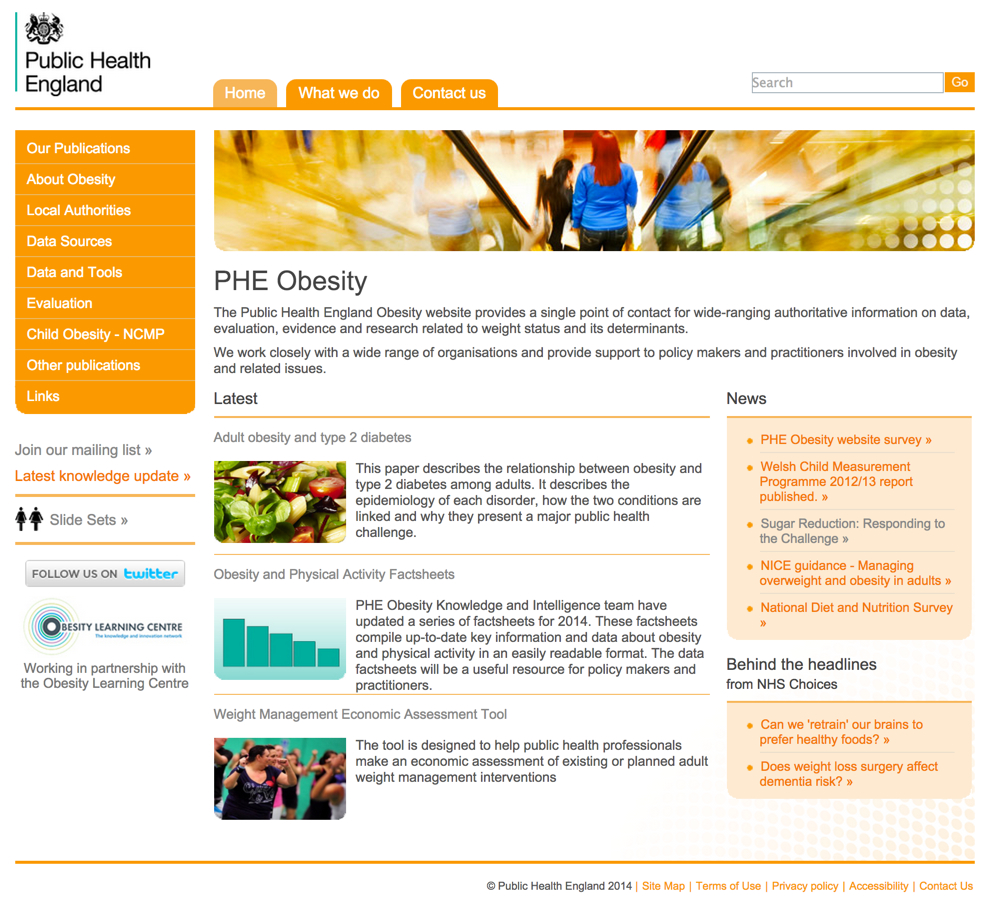
Over the next 18 months, PHE will:
- work with NHS England to implement the commitments to tackling obesity set out in the NHS Five Year Forward View
- produce an independent report for government on sugar and diet, including evidence reviews on fiscal measures and promotions and advice from the Scientific Advisory Committee on Nutrition
- publish the evidence-based Everybody Active, Every Day framework and refresh the eatwell plate and 5 a day approaches
- run the New Year healthy eating campaign and summer physical activity campaign, and increase the number of families signed up to Change4Life by 500,000
- support local authorities to deliver whole system approaches to tackle obesity, including through supporting healthier and more sustainable food procurement.
Outcome: An increase in the proportion of children leaving primary school with a healthy weight, accompanied by a reduction in levels of excess weight in adults.
Why focus on obesity? Being overweight is associated with increases in the risk of cardiovascular disease, diabetes and some cancers. It is also associated with poor mental health in adults, and stigma and bullying in childhood. We know that poor diet has a direct impact on health: an estimated 70,000 premature deaths in the UK could be avoided each year if UK diets matched nutritional guidelines. We also know that one in two women and one in three men are insufficiently active for good health. There are stark inequalities in levels of child obesity, with prevalence among children in the most deprived areas being double that of those children in the least deprived areas. If an individual is poor, he or she is more likely to be affected by obesity and its health and wellbeing consequences.
Where are we now? Being obese or overweight is becoming the social norm: the number of children who are obese doubles from reception to year six, while among adults 67% of men and 57% of women are obese or overweight.
Tag: PHE